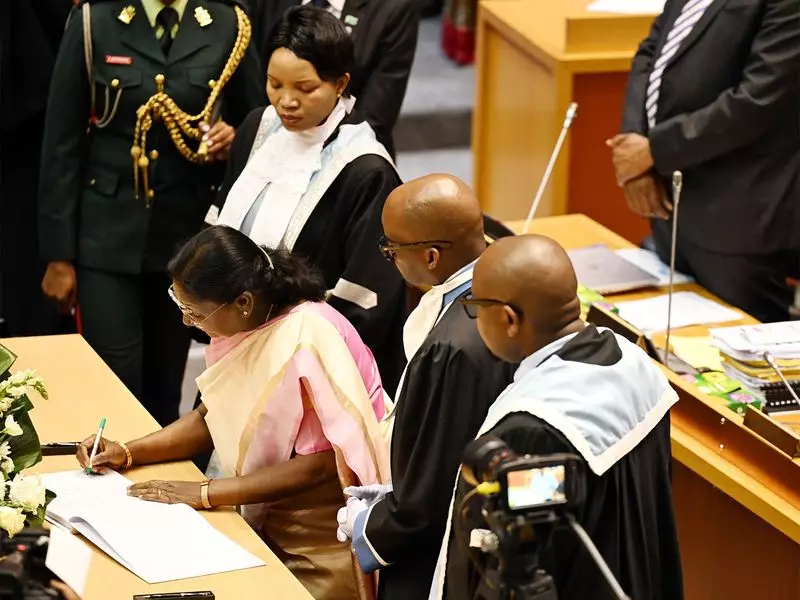
President Droupadi Murmu has identified a significant convergence between India's ambitious Viksit Bharat 2047 vision and Africa's Agenda 2063, presenting what she describes as a golden opportunity for enhanced collaboration with Botswana. During a meeting with Botswana's President Mokgweetsi Masisi at Rashtrapati Bhavan, the Indian leader emphasized the potential for mutual growth and development through strategic partnership.
Historic Meeting Strengthens Bilateral Ties
The ceremonial welcome extended to President Masisi marked his first state visit to India, signaling a new chapter in India-Botswana relations. President Droupadi Murmu highlighted the historical bonds between the two nations, noting that both countries have struggled against colonial rule and now share similar development aspirations.
During their discussions, both leaders recognized the importance of South-South cooperation and explored ways to deepen engagement across multiple sectors. The timing of this visit is particularly significant as both nations work toward their long-term development goals within similar timeframes.
Shared Visions for National Development
President Murmu specifically pointed to the alignment between India's Viksit Bharat 2047 initiative and Africa's Agenda 2063 as creating unprecedented opportunities for cooperation. Viksit Bharat 2047 represents India's roadmap to become a developed nation by 2047, marking the centenary of Indian independence.
Similarly, Africa's Agenda 2063 is the continent's strategic framework for achieving inclusive and sustainable development. The parallel timelines and complementary objectives provide what President Murmu termed as "a perfect platform for active collaboration between our nations."
Expanding Cooperation Across Key Sectors
The two leaders discussed substantial opportunities for partnership in several critical areas:
- Digital infrastructure and technology transfer
- Healthcare and pharmaceutical manufacturing
- Education and skill development programs
- Renewable energy and climate resilience
- Agricultural innovation and food security
President Murmu emphasized India's commitment to sharing its developmental experience and technological expertise with Botswana. She noted that Indian companies have already made significant investments in Botswana and expressed confidence that this trend would accelerate under the new framework of cooperation.
The Indian President also acknowledged Botswana's progress in democracy and governance, highlighting the country's stability as a key factor for successful long-term partnership. Both nations agreed to strengthen people-to-people contacts and cultural exchanges to build deeper understanding between their citizens.
Future Prospects and Strategic Importance
This enhanced partnership comes at a crucial time when global south cooperation is gaining increased significance in international relations. The alignment of development visions creates a solid foundation for what both leaders hope will become a model for South-South cooperation.
The state visit concluded with both nations committing to regular high-level engagements and establishing working groups to translate the discussed opportunities into concrete projects. The partnership is expected to not only benefit both countries directly but also contribute to broader regional stability and development in their respective neighborhoods.
As President Murmu stated during the talks, "Our shared histories and common aspirations make us natural partners in the journey toward prosperity and sustainable development." The successful state visit has set the stage for what promises to be a transformative period in India-Botswana relations.





